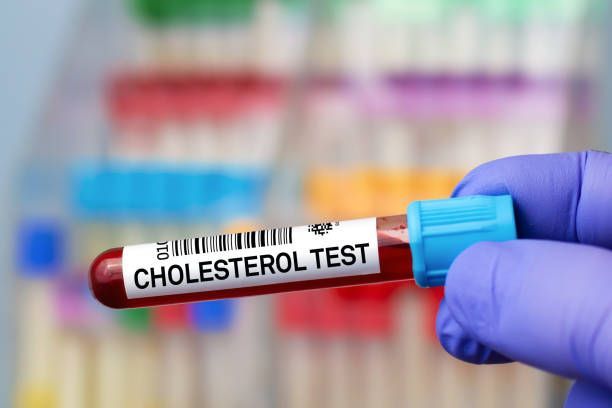Everything You Should Know About Swimmer’s Itch
Swimmer's itch, or cercarial dermatitis, is an irritating skin condition that affects individuals after swimming or bathing in freshwater bodies such as lakes, ponds, or rivers. An allergic reaction to certain microscopic parasites present in the water causes it. Although a swimmer's itch is not a severe medical condition, it can cause discomfort and inconvenience. Understanding the causes, symptoms, prevention, and treatment options can help individuals enjoy their time in freshwater while minimizing the risk of swimmer's itch. We will explore everything you should know about swimmer's itch, empowering you to protect your skin, make the most of your aquatic adventures, and know when to visit an urgent care center.
What is Swimmer’s Itch?
Swimmer's itch is a common skin condition after swimming or bathing in freshwater bodies such as lakes, ponds, or rivers. It is caused by an allergic reaction to certain microscopic parasites in the water, particularly the larvae of flatworms and flukes. These parasites have a complex life cycle that involves infecting snails as intermediate hosts and releasing larvae into the water. When these larvae come into contact with human skin, they can burrow into the upper layers, causing irritation and an itchy rash.
The body's immune response to the larvae leads to the characteristic symptoms of swimmer's itch, including redness, inflammation, and small raised bumps or blister-like lesions. While swimmer's itch is not a severe medical condition and typically resolves on its own within a few days to a week, it can cause discomfort and inconvenience.
Factors Affecting the Risk of Swimmer’s Itch
Several factors can influence the risk of developing swimmer's itch after exposure to infected freshwater bodies. The geographic location plays a role, as certain regions have a higher incidence of swimmer's itch due to specific parasite species and suitable snail hosts. The season and water temperature also contribute, as swimmer's itch is more common during warmer months when people engage in water activities and when water temperatures support the growth and release of parasite larvae.
The conditions of the water body are also crucial, with stagnant or shallow water providing favorable environments for snail populations and higher concentrations of parasite larvae. The density of snail populations directly affects the risk, as areas with a high snail abundance are more likely to have increased transmission. Further, personal factors such as immune response and skin sensitivity vary among people and can influence the severity of the allergic reaction to parasite larvae. Understanding these factors helps individuals assess and manage their risk of swimmer's itch and know when it’s time to visit a 24 hour urgent care center.
Prevention
Preventing swimmer's itch involves taking proactive measures to minimize exposure to the parasites responsible for the condition. Here are some effective prevention strategies:
1. Choose Swimming Locations Wisely
Avoid swimming in freshwater bodies with a high risk of swimmer's itch. Research local reports or consult authorities to identify safer areas for swimming.
2. Minimize Direct Contact
Limit the time spent in the water and avoid areas with dense vegetation, as these are common habitats for snails and parasite larvae.
3. Dry Off Quickly
After leaving the water, promptly dry your skin with a towel to remove any potential larvae that may be present on the surface.
4. Use Protective Measures
Consider wearing waterproof sunscreen or applying a water-resistant barrier cream to create a protective layer on your skin, reducing the chances of larvae penetration.
5. Rinse with Clean Water
Rinse your body with clean, non-infested water immediately after leaving the freshwater to wash away parasites clinging to your skin.
6. Moisturize Your Skin
Keeping your skin well-moisturized can enhance its natural protective barrier, reducing the likelihood of larvae penetration.
By adopting these preventive measures, individuals can significantly lower their risk of developing swimmer's itch and enjoy their time in freshwater with greater peace of mind.
Treatment and Management
There are several options available fortreating swimmer's itch. Topical treatments are often the first line of defense, with over-the-counter anti-itch creams or lotions containing ingredients like hydrocortisone providing temporary relief from itching and inflammation. Calamine lotion or cool compresses can also be applied to soothe the affected skin. A healthcare professional may recommend oral antihistamines to reduce itching and associated allergic reactions.
It is crucial to avoid scratching the affected area, as this can worsen irritation and potentially lead to secondary infections. Instead, gentle patting or cool compresses may provide relief. Keeping the skin moisturized with creams or lotions can help alleviate dryness and promote healing. Most swimmer's itch cases resolve independently within a few days to a week. Still, if symptoms persist or worsen or signs of infection develop, it is advisable to consult a healthcare professional or urgent care services for further evaluation and appropriate treatment.
Frequently Asked Questions About Swimmer’s Itch
There are many questions that people may have regarding swimmer’s itch. Below are some of the most common questions and their associated answers.
What are the common symptoms of swimmer's itch?
Swimmer's itch typically presents with itching, redness, and the formation of small raised bumps or blister-like lesions on the skin.
Can swimmer's itch affect children?
Yes, swimmer's itch can affect individuals of all ages, including children. Children may be more susceptible to swimmer's itch due to their smaller body size and potentially more sensitive skin. If severe, visit a pediatric urgent care office for support.
Is swimmer's itch contagious?
No, swimmer's itch is not contagious. It cannot be transmitted from person to person. It is caused by an allergic reaction to parasite larvae and not by direct contact with an infected individual.
Find Urgent Care Near You
Understanding swimmer's itch is crucial for those who enjoy freshwater activities. By knowing its causes, symptoms, prevention strategies, and available treatments, individuals can make informed decisions to minimize their risk of developing swimmer's itch and manage its symptoms effectively if it occurs. Remember, prevention is vital, and following proper hygiene practices, avoiding known infested areas, and promptly treating any symptoms can help ensure a more enjoyable and itch-free experience in the water.
Consulting a healthcare professional at UrgiClinic Urgent Care is always advisable if you have any concerns or persistent symptoms. Stay informed, take precautions, and confidently dive into your aquatic adventures.













